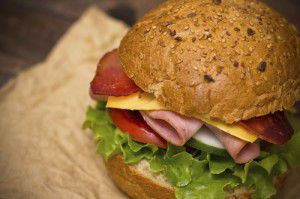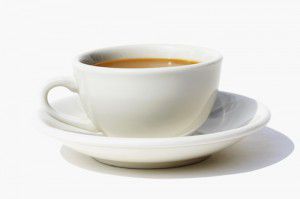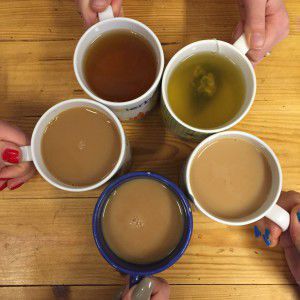5 ways to be happy like the Bhutanese
Recently, we were recording the Bhutanese language of Dzongkha for uTalk (now available!) and realised we knew hardly anything about the Himalayan kingdom. The Duke and Duchess of Cambridge are visiting as part of their Royal visit to India and Bhutan; so we thought we would do a bit of reading – and now we want to move there.
Gross National Happiness is an actual thing in Bhutan! Rather than measure the GDP (gross domestic product) the Bhutanese measure how happy their population is. In 2015 it found that 91.2% of the population would describe themselves as happy – whether ‘narrowly, extensively or deeply happy’; they classed themselves as happy. How lovely is that? But how do they do it? Here are some tips on how to make your life a little bit happier.
1. Turn off your computer, phone, Internet connection
In Bhutan the Internet didn’t arrive until 1999, so why not try to go Internet free. I know this is shocking – a lot of us are glued to our smartphones. But, why not try turning it off? Even if just for an hour every day, take a break from the cyber world and do something else instead. If you tend to use your smart phone before bed try replacing it with a book. A lamp doesn’t emit a stimulating light like your smartphone, which keeps you awake for longer; let’s be honest who doesn’t love extra sleep.
2. Listen to some music
Apparently Bhutan’s King, Jigme Khesar Namgyel Wangchuck is a huge fan of The King of Rock, Elvis. So put on your blue suede shoes and get dancing, singing, or just listen to some music. Spotify have some perfect mood boosting playlists and motivational songs.
3. Have a cuppa
A cup of tea, or a warm drink – if you’re not a tea lover, this can help to relax you. In Bhutan they have their own version of ‘tea’ called suja, described as thick and creamy, made of salted yak butter. Instead of serving it with a rich tea biscuit, it comes with dry popped rice.
4. Take up yoga/meditation
Find your zen! The Bhutanese allow for daily meditation sessions in school, and play traditional music to sooth students instead of a school bell. Doing yoga or meditating is the perfect way to zone out after a stressful day. There’s now such a thing as yoga with bunnies or even goats in some places.
5. Go for a bike ride
Jigme Khesar Namgyel Wangchuck’s dad (the previous king of Bhutan) used to ride up and down the mountains of Bhutan. Some of the locals in Bhutan are sure they have seen him cycling around the town in his spare time. Going for a bike ride is a great way to get some exercise and it releases feel-good endorphins. Apparently it also helps you to sleep more deeply and will help ease any guilt from snacking.
What are your top tips to live happy?
Fancy a cuppa? Got time for a brew?
Travel around the UK a bit and you’ll find that tea is not just known as ‘tea’: so ubiquitous is it that there are plenty of regional and affectionate names for our favourite drink. A cuppa, a brew, a cup of char, a Rosy Lee (Cockney rhyming slang), a builder’s will all get you the same thing: a nice cup of steaming hot, milky tea. Lovely!
Tea is so important to us that it’s even filtered into our everyday language and is integral to some of our common idioms. Here are a few examples:
Not for all the tea in China!
You want me to do what?? Not for all the tea in China! Essentially meaning that you wouldn’t do something, no matter how good the reward.
It’s not my cup of tea.
Are you enjoying this programme? Not really- it’s not my cup of tea. Very simply, if something’s not your cup of tea, you don’t like it.
As useful as a chocolate teapot.
Fairly self-explanatory: not useful in the slightest.
Tea and sympathy
If someone’s upset, you might give them tea and sympathy (a nice strong cup of hot tea offering, of course, immeasurable comfort).
Tea leaf
Oy! That tea leaf’s ‘alf-inched me wallet! In Cockney rhyming slang, a tea leaf is a thief! (And, in case you’re wondering, to half inch is to pinch.)
Can you think of anymore tea idioms? Lets us know on Twitter or Facebook.
A Hungry Conundrum
Learning a language is one thing… but what happens when that language changes depending where in the country you happen to be standing? That’s the subject of today’s blog post from Kelly – if you’ve encountered any of these regional confusions, we’d love to hear about them!
When is a roll a cake?
Before you break out your finest John Shuttleworth impression in fear of pudding before main, there is actually a very good answer to this.
Because unless you’ve never ventured further than your local shops and the thought of travelling to the next borough, town or neighbourhood fills you with a sense of dread, you’ve probably noticed that local words for things vary.
We don’t necessarily mean profound things like finding yourself receiving a chocolate biscuit when you asked for a custard cream (no complaint there really but still, confusing), but honestly, there is a minefield of potential outrage and disappointment out there if you’re not sure what you’re asking for.
Be careful where you ask for a ride, for example.
Back to our conundrum.
Escaping the Smoke
 When I left that there London many years ago from the pigeon-infested Victoria Coach Station on a one-way journey to Yorkshire, I’m pretty sure in my possession was a copy of Kerrang, a selection of confectionary, and a bread roll containing cheese and pickle.
When I left that there London many years ago from the pigeon-infested Victoria Coach Station on a one-way journey to Yorkshire, I’m pretty sure in my possession was a copy of Kerrang, a selection of confectionary, and a bread roll containing cheese and pickle.
Somewhere along the M1 that innocent-sounding sandwich was eaten, but had it remained intact, a magical thing would have happened to it. For on the journey North, it would have transformed from a roll, to a batch, to a cob, perhaps to a scuffler (I forget the exact National Express route…) before finally settling on being a breadcake.
In Britain, even wheat-based products have identity crises.
How do you say…
English is a diverse language for both native and non-native speakers alike, but think how much more embarrassing it is for a native speaker not being able to order something in their own country in their own tongue. We normally reserve such ridicule for when we travel abroad unprepared, in the arrogant but not-so-naive knowledge that English is spoken everywhere. But on our own doorstep, a quick weekend away can mean an unwanted education in local colloquial vocabulary.
Perhaps it would be easier to stick to the tourist move of pointing at the menu and blinking mutely.
 Another area of confusion could be the names for mealtimes. There is a fond memory of a misunderstanding over tea and dinner time. An offer of tea to a friend was met with an expectation of milk, sugar, and possibly biscuits, but when the option presented was tuna and sweetcorn, it was rapidly declined. With a horrified expression that said, ‘who are you people? What are you doing to the sanctity of the cup of tea???’, a friendship was on the brink. Because breakfast, lunch and dinner can also be breakfast, dinner and tea, depending where you are in our humble isle. (The tuna and sweetcorn was for a jacket potato, in case you were wondering).
Another area of confusion could be the names for mealtimes. There is a fond memory of a misunderstanding over tea and dinner time. An offer of tea to a friend was met with an expectation of milk, sugar, and possibly biscuits, but when the option presented was tuna and sweetcorn, it was rapidly declined. With a horrified expression that said, ‘who are you people? What are you doing to the sanctity of the cup of tea???’, a friendship was on the brink. Because breakfast, lunch and dinner can also be breakfast, dinner and tea, depending where you are in our humble isle. (The tuna and sweetcorn was for a jacket potato, in case you were wondering).
And another thing…!
While we’re on our home-away-from-home soapbox, can we take this opportunity to complain about the options available for a ‘pattie’ in your local fish and chip shop? Because again, depending on where you go, this could be fish, potato, fish and potato, potato in a mixture resembling bubble and squeak… There are probably more variations too, and one place we really don’t want to be confused is our chippy. Next you’ll be debating if the perfect side is mushy peas, curry sauce or gravy, and it’s all too delicate a subject for us to deal with without serious, in depth thought. To quote Hot Pie, “you cannot give up on the gravy.”
See? Now look what’s happened. We’re hungry and we want pie. But when is a pie not a pie?
That’s it. Time for a pub lunch.
Wetherspoons, anyone?
Kelly





